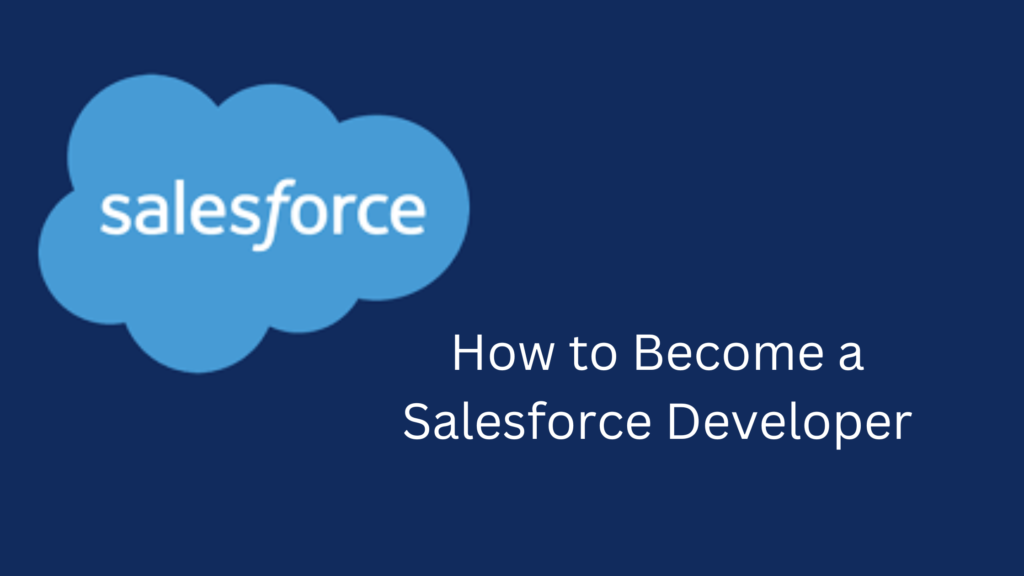Unveiling the World of Salesforce Developers: Roles, Skills, and Career Prospects

In the ever-evolving landscape of technology and business, Salesforce stands as a juggernaut in the world of customer relationship management (CRM). At the heart of this powerful platform, Salesforce Developers play a pivotal role in crafting customized solutions to meet the unique needs of businesses. In this comprehensive guide, we’ll dive deep into the world of Salesforce Developers, exploring their roles, responsibilities, salary prospects, the path to becoming one, and whether this career choice holds promise for the future.
What is a Salesforce Developer?
A Salesforce Developer is a professional who specializes in building, customizing, and maintaining applications and solutions within the Salesforce platform. Salesforce is a cloud-based CRM that offers a wide array of tools and features designed to help businesses manage their customer data, streamline operations, and drive growth. Salesforce Developers are the architects who transform these tools into tailored solutions that align with a company’s specific requirements.
What Does a Salesforce Developer Do?
Salesforce Developers are responsible for a broad spectrum of tasks, which include:
1. Custom Application Development:
They create custom applications using programming languages like Apex and integrate them with Salesforce.
2. System Configuration:
Developers configure and customize Salesforce to adapt it to the unique needs of an organization.
3. Data Management:
They manage data within the Salesforce platform, ensuring its accuracy and security.
4. Integration:
Developers integrate Salesforce with other systems and applications, fostering a seamless flow of data and processes.
5. Automation:
They build workflows and automations to streamline business processes and enhance productivity.
6. Maintenance and Support:
Salesforce Developers provide ongoing support, maintenance, and troubleshooting for applications and systems.
Roles and Responsibilities of a Salesforce Developer
The roles and responsibilities of a Salesforce Developer may vary depending on the organization, but typically include:
1. Requirement Analysis:
Understanding the business needs and translating them into technical requirements.
2. Solution Design:
Creating and designing solutions that align with business objectives.
3. Coding and Implementation:
Writing code in Apex and other programming languages to develop custom functionalities.
4. Testing:
Rigorously testing applications to ensure they meet quality standards.
5. Documentation:
Maintaining comprehensive documentation for solutions and customizations.
6. Integration:
Integrating Salesforce with other platforms and applications.
7. Continuous Learning:
Staying updated with the latest Salesforce updates and best practices.
Salesforce Developers Salary
The salary of a Salesforce Developer can vary based on factors like experience, location, and company size. On average, Salesforce Developers can earn a competitive salary, often exceeding that of general software developers. Mid-level and senior Salesforce Developers command even higher salaries due to their expertise.
How Does One Become a Salesforce Developer?
Becoming a Salesforce Developer typically involves the following steps:
1. Education:
Start with a strong foundation in computer science or a related field. Consider pursuing relevant courses or certifications.
2. Salesforce Certifications:
Obtain Salesforce certifications, such as Salesforce Certified Platform Developer I and II, which demonstrate your expertise.
3. Gain Experience:
Work on Salesforce projects or seek internships to gain practical experience.
4. Networking:
Connect with the Salesforce community through events, forums, and user groups.
Key Skills Required To Be An Efficient Salesforce Developer
To excel as a Salesforce Developer, you should possess the following key skills:
1. Apex Programming:
Proficiency in Apex, Salesforce’s programming language, is essential.
2. Visualforce:
Knowledge of Visualforce for building custom user interfaces.
3. Lightning Components:
Understanding of Lightning components for creating dynamic and responsive applications.
4. Data Modeling:
Skill in designing and managing data models within Salesforce.
5. Integration Skills:
Expertise in integrating Salesforce with other systems and platforms.
6. Problem-Solving:
Strong analytical and problem-solving abilities.
Is Salesforce Developer a Good Career?
The role of a Salesforce Developer is not only rewarding but also in high demand. With the continuous growth of Salesforce as a CRM platform, there’s a constant need for skilled professionals to develop and maintain customized solutions. The career offers job security, competitive salaries, and opportunities for growth.
In conclusion, Salesforce Developers are the architects of innovation within the Salesforce ecosystem. They bridge the gap between a standard CRM platform and a tailored solution that empowers businesses to thrive in the digital age. If you’re passionate about technology, enjoy problem-solving, and want to be at the forefront of CRM innovation, a career as a Salesforce Developer might be the right path for you.

Leave a Reply